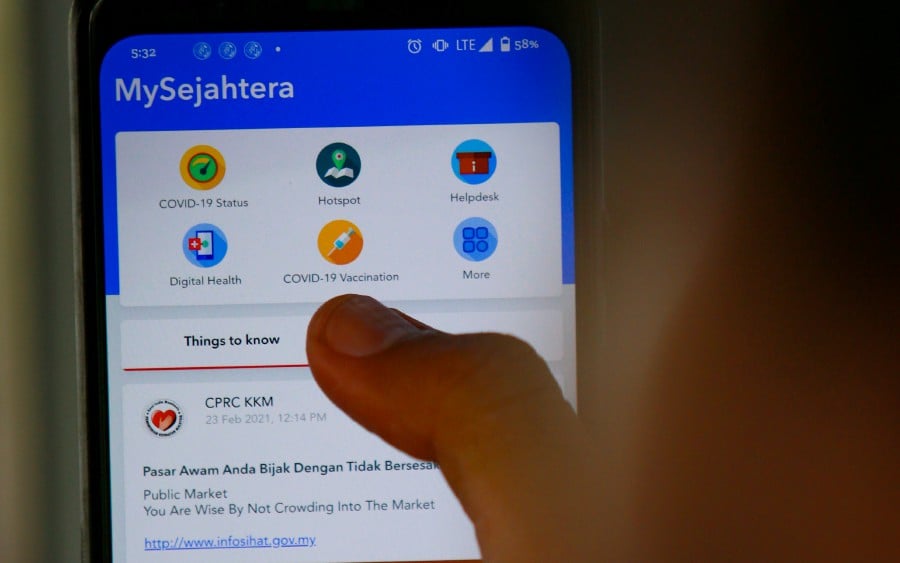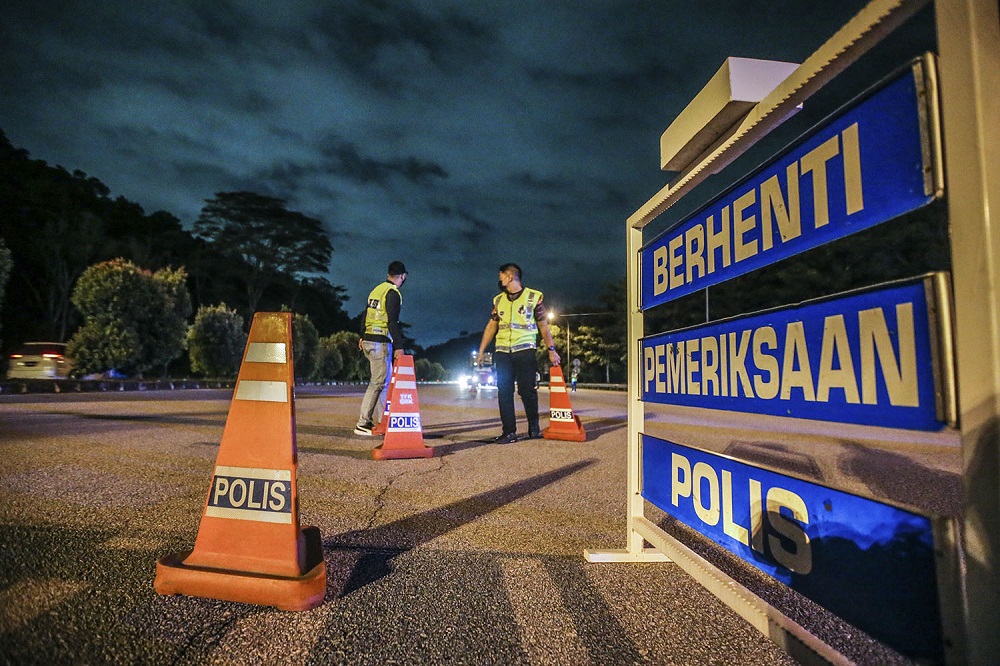Vague directives, contradictory requirements, and a haphazard patchwork of affected areas leave netizens and business leaders utterly baffled.
Malaysians will need to find a new meaning for the acronym ‘MCO’ as the latest version, which comes into effect on Thursday, May 6, doesn’t appear to actually control any movement – at least not meaningfully so.
The so-called MCO 3.0 – such as it is – will be in place until May 17. But not everywhere and only for certain things. In no way is this initiative at all like MCO 1.0 from March-May 2020.
Economic activities? Construction? Deliveries? Factory work? All still allowed. Social activities? Banned. Ramadan bazaars? Still allowed… but only sometimes, and in some places. Open houses? Prohibited, except for maybe the first day of Hari Raya, and only in certain places, but limited to 15 people in some areas, but different numbers in other areas.
Restaurants in KL? Business as usual. Restaurants in PJ? Sorry, no dine-in allowed. Crossing districts? Not allowed… except for work purposes, getting vaccinated, and probably grocery shopping, but it’s not really clear. What if you live in PJ and work in KL, as many do? No word on that. What if you live in KL and your grocery store is in PJ? Also no word.
Weekly markets, though, as well as farmers markets and public markets, will be allowed to operate from 6am to 2pm, and Ramadan bazaars in the MCO areas will also be allowed to continue operating with strict adherence to SOPs, but this is up to the individual local authorities’ discretion, and will vary from district to district.
There’s also an entire separate set of SOPs for Hari Raya, which Malaysians have found to be confusing and, in some cases, contradictory, if social media posts are any indication.
In fact, the ‘MCO 3.0’ doesn’t even affect all districts in Selangor, as it’s applicable to only six of the state’s nine demarcated areas. And it’s not being implemented in Kuala Lumpur at all, which has up to this point been generally considered as the same ‘district’ as Selangor for assessing movement controls. It’s even more relaxed in Putrajaya, which is of course completely surrounded by the Sepang district of Selangor, which is all under MCO.

LACK OF CLARITY, PLENTY OF CONFUSION
It’s all completely baffling and many are wondering what the point is. Even the Malaysian Medical Association (MMA) is publicly calling for more details and better explanations.
MMA President Dr Subramaniam Muniandy said there should be more clarity on the SOPs for the Hari Raya celebrations beginning May 13.
“Proper guidelines should be given for Hari Raya prayers in mosques and suraus and family visits, especially for those living in smaller houses or apartments where it can be difficult to observe physical distancing,” he said.
Segambut MP Hannah Yeoh was also among those confused, saying that she could not understand why the latest MCO was not implemented in her district, as neighbouring districts in Selangor would be ‘locked down’ from Thursday.
In a Twitter statement, Yeoh cited the example of the federal territory (KL) and Petaling, one of the six districts in Selangor that will fall under the MCO.
She pointed out that 1Utama Shopping Mall, which is on the Petaling Jaya side of the Damansara-Puchong Expressway (LDP) and Taman Tun Dr Ismail, under a hundred metres away, but on the KL side of the LDP, would have completely different regulations in play despite their proximity.
“I’m trying to understand the new MCO to combat Covid-19,” she wrote. “On 6 May: On the 1 Utama side = MCO. But cross just one traffic light, on the TTDI, KL = No MCO.”
Seemingly speaking for everyone, Yeoh all but sighed via tweet: “I don’t understand @MKNJPM strategy.’’
HARI RAYA GUIDELINES ALSO CAUSE CONFUSION
Hari Raya SOPs were also announced, soon drawing a range of comments on social media that suggest the announcement caused more questions than it answered. For instance, prayers are allowed at mosques and suraus in MCO, CMCO, and RMCO areas, although the final decision lies with the religious authority of each state, so this can vary.
The feasts following the prayers at the mosques are not allowed for MCO areas, however, though seem to be okay in CMCO and RMCO areas.
Visiting relatives is allowed in MCO areas, but only on the first day of Hari Raya with guests not exceeding 15 people at one time, while in CMCO areas, it is allowed for the first three days, and with guests limited to up to 25 people at any given time. Again, this is subject to interpretation by each state’s religious authorities.
Additionally, visiting graves is prohibited in MCO areas, but allowed for CMCO and RMCO areas, being limited to six people per grave, and not exceeding 30 minutes. No word on how to proceed if you live in one district and your loved one’s grave is in another.
BUSINESS RELATIONSHIPS STRAINED
In the year since the first MCO ravaged the country’s economic climate, a raft of inconsistent standard operating procedures (SOPs) and delays in visa processing and approvals have made many foreign business question whether or not to remain in the country.
As reported by The Malaysian Reserve, Malaysian-German Chamber of Commerce and Industry (MGCC) CEO Daniel Bernbeck said the lack of clarity and direction has created an undue burden on businesses, making it difficult for the German business community to remain committed to Malaysia, where 90% have seen their businesses adversely affected by the pandemic.
This is noteworthy because Malaysia is Germany’s biggest trading partner in the whole of ASEAN, with bilateral trade in 2019 registered at just under RM70 billion.

“On one hand, we are grateful that early on, the Malaysian government was very swift in imposing the lockdown which helped curb the pandemic and protect our health compared to Germany, where they are currently having it worse,” Bernbeck explained. “But at the same time, once the economy was allowed to resume, there seems to be a lot of miscommunications and lack of clarity on the rules.”
The confusion over what is and is not considered an ‘essential service’ is a problem, he noted, as there are times where different parts of the same supply chain may be categorised differently, which causes serious issues to arise.
Moreover, Bernbeck continued, the whole process surrounding visa applications and approvals for expats has become onerous and time-consuming. What used to be a three-week process now takes about three months and even once the application has been approved, the waiting time for an endorsement (i.e., getting the physical visa applied into the expat’s passport) might take another three months or longer.
“In the meantime, without proper documentation, we are in constant fear of legal repercussions, and we have to go through a tedious process of clarification with the authorities,” he said.
Although the pandemic itself has compelled some companies to pack up and leave Malaysia, Bernbeck said it’s the lack of assurance and continued confused standards (in regulations and SOPs) which has been the final straw for other companies.
“We understood that for foreigners with long-term visas or even permanent residence, who are mostly investors or employers to thousands of local employees who wish to re-enter Malaysia, they [the employers] had to fork out RM2,600 per person for administration fees,” Berbeck noted.
“I think we can accept it in the form of quarantine costs, which I do not think any of us have issues with, but with this fee, it is as if Covid-19 knows your nationality. If it is an administration fee, should it not be applicable to all — or to nobody?”
ANOTHER NEW ACRONYM TO ABSORB?
On top of MCO/PKP, SOP, and a blizzard of other acronyms that have come and gone during the pandemic response, the government is rolling out a new one in conjunction with the latest MCO: HIDE.
It stands for Hotspots Identification for Dynamic Engagement, or something very similar (the precise wording seems to vary a bit, depending on the source).
The HIDE system was jointly developed by Bank Negara Malaysia and the Ministry of Health, and it aims to provide early warning in preventing the spread of Covid-19 infections by using data from the MySejahtera application.

National Covid-19 Immunisation Programme Coordinating Minister Khairy Jamaluddin said that the decision was made following the recent spike in the number of new Covid-19 cases in the country.
“The list enables the owners of the premises and the public to take appropriate action to prevent the occurrence of clusters triggered by the premises,” he explained. “Besides that, it also allows the business premises involved to be identified as a ‘hotspot’ for the possibility of the formation of large clusters.”
Khairy said that by having the list of premises it would enable the public to carry out self-monitoring, including an ability to avoid hotspots or risky areas.
Bringing irony and confusion full circle, Khairy further noted that shopping malls, eateries, office premises, supermarkets, and bazaars were among the large hotspots identified by the HIDE system, begging the question of why these large pop-up bazaars continue to be allowed, and why Kuala Lumpur – which when we last checked had no shortage of malls, eateries, and supermarkets – was not included in the scattershot MCO 3.0.
AREAS FALLING UNDER MCO RULES
The major areas in Selangor’s six districts placed under the MCO are as follows (note that certain areas within each district overlap with one another):
PETALING: Petaling Jaya, Puchong, Subang Jaya, Damansara, Shah Alam, Bukit Raja, Kota Raja, Bandar Sri Damansara, Country Heights, Puchong, Puchong Jaya, Puchong Perdana, Serdang
HULU LANGAT: Kajang, Ampang, Cheras, Bangi, Semenyih, Beranang, Bandar Baru Bangi, Bandar Tun Hussein Onn, Balakong, Taman Sri Nanding
KLANG: Kapar, Shah Alam, Meru, Bandar Baru Klang, Bukit Kemuning, Pandamaran, Port Klang, Telok Menegun, Glenmarie Cove, Batu 4
GOMBAK: Gombak, Rawang, Ampang, Setapak, Ulu Klang, Selayang, Kundang, Kuang, Batu Caves, Sungai Buloh, Kampung Sungai Pusu
KUALA LANGAT: Bandar Saujana Putra, Banting, Batu, Jugra, Teluk Datok, Morib, Tanjung Sepat, Teluk Panglima Garang
SEPANG: Pekan Sepang, Dengkil, Sungai Pelek, Cyberjaya, Salak Tinggi, KLIA
"ExpatGo welcomes and encourages comments, input, and divergent opinions. However, we kindly request that you use suitable language in your comments, and refrain from any sort of personal attack, hate speech, or disparaging rhetoric. Comments not in line with this are subject to removal from the site. "





















